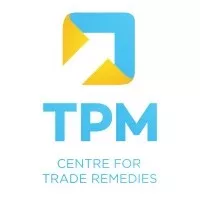- within International Law topic(s)
- in United States
- with readers working within the Property industries
- within Media, Telecoms, IT, Entertainment, Government and Public Sector topic(s)
Indian Updates
India and Australia conclude the 11th round of the India – Australia CECA
The eleventh round of negotiations for the India–Australia Comprehensive Economic Cooperation Agreement (CECA) concluded on 23rd August 2025, with discussions focused on key areas including trade in goods and services, mobility, digital trade, rules of origin, legal and institutional provisions, environment, labour, and gender. The CECA is expected to build on the existing India–Australia Economic Cooperation and Trade Agreement (ECTA), which came into force in December 2022.
India and Eurasian Economic Union sign Terms of Reference to launch Free Trade Agreement Negotiations
On 20th August 2025, India and the Eurasian Economic Union (EAEU), which includes Armenia, Belarus, Kazakhstan, Kyrgyz Republic and Russia signed the Terms of Reference (ToR) to formally begin negotiations for a Free Trade Agreement. The proposed FTA is expected to enhance market access for Indian exporters, support MSMEs, attract investment, and diversify trade across Eurasia. Both sides expressed commitment to conclude negotiations swiftly, aiming to strengthen cooperation in sectors such as pharmaceuticals, engineering, and energy.
India – ASEAN Trade Agreement review underway with back-to-back negotiation rounds
India and ASEAN held the tenth round of the review meeting of the ASEAN – India Trade in Goods Agreement (AITIGA), originally signed in 2009. The representatives discussed Customs procedures, rules of origin, trade remedies, market access, and regulatory alignment. The next round is scheduled to be held in October with focus on priority sectors, logistics, digital trade, and cross-border facilitation.
India and the Philippines begin negotiations for a Bilateral Preferential Trade Agreement
On 5th August 2025, India and the Philippines officially begin negotiations for a Preferential Trade Agreement aimed at enhancing bilateral trade and strategic cooperation. The PTA will build on the existing ASEAN–India Trade in Goods Agreement (AITIGA), allowing both countries to tailor concessions for improved market access. India is expected to seek greater access for its agricultural exports such as potatoes and grapes. The Philippines has expressed interest in Indian technologies for seaweed cultivation and investments in major infrastructure projects. Both sides also aim to expand digital economy collaboration.
Global Updates
Angola and the United Arab Emirates sign a Comprehensive Economic Partnership Agreement
Angola and the UAE have signed the Comprehensive Economic Partnership Agreement, with an aim to strengthen bilateral ties and boost non-oil trade. The CEPA is projected to contribute a billion USD to each economy and generate around 30,000 jobs. The CEPA prioritizes sectors like gemstones, minerals, mining, digital trade, and agri-tech, leveraging the Atlantic coastline of Angola as a strategic logistics hub. UAE will enjoy duties reductions and eliminations on exports of petroleum distillates, iron, steel, and perfumes, while goods from Angola such as diamonds, gold, copper, and grains, will also enjoy preferential duties. Along with the CEPA, the two countries have also signed MoUs for enhanced cooperation in AI, central banking and agriculture.
The Philippines - Japan Reciprocal Access Agreement (RAA) to enter into force on 11th September 2025
On 12th August 2025, the officials from Japan and the Philippines exchanged notes to enter into force the Philippines - Japan Reciprocal Access Agreement. The Agreement was signed in July 2024. The RAA is set to enhance interoperability between the forces of the two countries. In addition, the RAA provides a legal and procedural framework for the entry and departure of the defence forces, vessels, aircraft and equipment of one country from the territory of the other, for activities mutually agreed upon by the parties.
New Zealand - United Arab Emirates Comprehensive Economic Partnership Agreement enters into force
The UAE – New Zealand Comprehensive Economic Partnership Agreement (CEPA), has come into force on 27th August 2025. The Agreement aims to provide preferential access on multiple goods. New Zealand has offered 100% duty-free access to exports from UAE, while the UAE has offered 98.5% duty-free access to imports from New Zealand. The Agreement promotes collaboration in key sectors such as food production, renewable energy, education, and advanced technologies.
The United States of America and the European Union signed Framework Agreement on Reciprocal, Fair, and Balanced Trade
On 21st August 2025, the United States of America and the European Union announced a landmark Framework Agreement on Reciprocal, Fair, and Balanced Trade. The European Union has committed to eliminate tariffs on all the industrial goods of the USA and offer preferential access to American agricultural and seafood exports. In return, the USA has committed to put a 15% ceiling in tariffs on EU-origin goods along with key exemptions for aircraft, cork, and generic pharmaceuticals. The deal also reduces Section 232 tariffs on European automobiles and parts and promotes mutual recognition of standards to 15%. The European Union has also agreed to offer additional flexibilities in the CBAM implementation for small and medium-sized businesses in the USA. The European Union has also confirmed that it will not adopt or maintain network usage fees and both parties have decided not to impose Customs duties on electronic transmissions.
The content of this article is intended to provide a general guide to the subject matter. Specialist advice should be sought about your specific circumstances.


